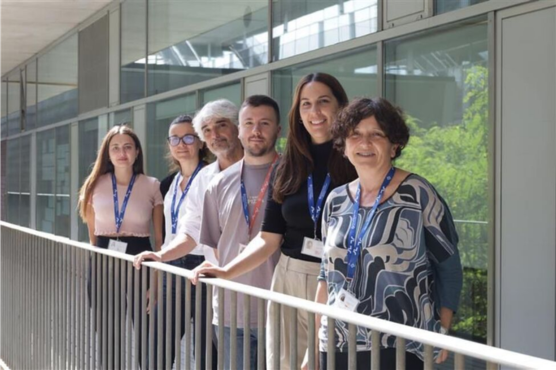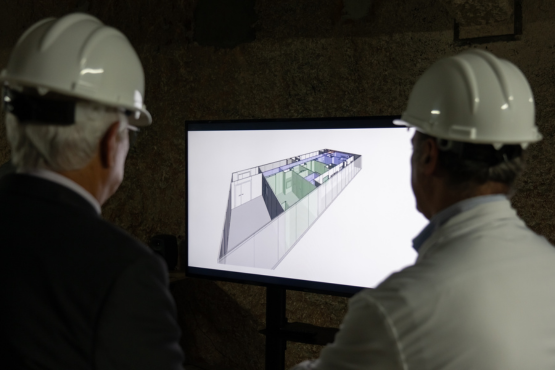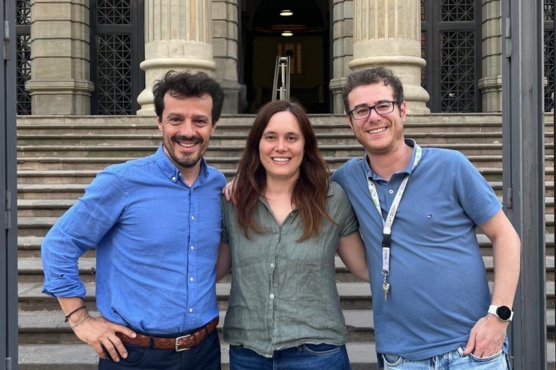Article “Research into leukaemia” by Prof. Evarist Feliu

Prof. Evarist Feliu
President of the Spanish Haematology and Hemotherapy Society
President of the Delegate Commission of the José Carreras Research Institute against Leukaemia
Scientific Secretary of the José Carreras Foundation in Spain
“Malignant blood diseases in general and in particular leukaemia represent one of the most important challenges in the study and treatment of cancers of the human species. In fact, they have represented and continue to represent, a model of curable cancer. It is not strange, therefore, that the two cancers that currently have the greatest proportion of patients that reach a cure are Juvenile Acute Lymphoblastic Leukaemia (ALL) and Hodgkin’s lymphoma.
The only way to find a cure for leukaemia is through cooperative research. Better knowledge regarding the origin and development of leukaemia leads to more precise treatment. More advanced treatments help to avoid or prevent damage caused by the growth and proliferation of malignant cells, and to preserve healthy cells and tissue, which is the ultimate goal of translational research. There are no doubts that the results of this research will be decisive to the search for a cure for leukaemia. Perhaps the best example of this is the use of ABL oncogene tyrosine kinase inhibitors in the treatment of chronic myeloid leukaemia. In order to produce these drugs the support of other biological disciplines is essential (such as pharmacology, genetics, and molecular biology, among others) along with basic disciplines such as physics, chemistry, mathematics and bioinformatics.

The areas of research can be divided into two types; clinical and laboratory. The former is studied from an epidemiological point of view, taking into consideration the geographical distribution and incidence of leukaemia, the possible determining factors, and the genetic, environmental and social risk factors that can be produced. Clinical research includes the study of infections, which continue to be the main cause of death in these patients, the study of new diagnosis procedures and the establishment of prognosis factors. In addition, clinical trials are carried out in the Clinical Research units, in collaboration with the pharmaceutical industry and national and international groups, in order to evaluate new medications. In Spain, the PETHEMA Foundation (a member of the Spanish Haematology and Hemotherapy Society (SEHH)) is the national coordinator of clinical trials which focus on the diagnosis and treatment of leukaemia.
Laboratory research studies the detection of minimal residue diseases using flow cytometry techniques, cytogenetics, and molecular biology. It also uses techniques of cytometry, cytogenetics, FISH, and comparative genomic hybridization to refine diagnosis and prognosis process of leukaemia. Genomic studies, as carried out by the Hospital Clinic of Barcelona in accordance with the International Cancer Genom Consortium (ICGC), permit the decoding of the genomic sequence of chronic lymphocytic leukaemia. This decoding allows for the development of new diagnostic tools, the discovery of new therapeutic methods and the elaboration of more precise, efficient and personalized treatment. Epigenetic, proteomic, and microRNA studies help to identify leukomogenesis mechanisms, such as protein targeting, which make the development of new anti-leukaemia agents more precise.
The opportunities within the research of leukaemia are evident. These opportunities are achieved by working with an experienced multidiscipline team in the distinct areas mentioned above and the network of clinical researchers in translational (from laboratory to clinical) and basic research. In this regard, it is appropriate to mention the European LeukaemiaNet, which includes two Spanish members; Dr. Josep Mª Ribera and Dr.Miguel Ángel Sanz. To optimize the research as much as possible LeukaemiaNet integrates 105 national leukaemia groups, 105 multidiscipline groups, and around 1,000 leukaemia specialists from 175 institutions. The principal function is to care for the thousands of leukaemia patients in 33 countries around Europe and the ultimate goal is to cure leukaemia. Since its establishment in 2002, the European LeukaemiaNet has expanded and unified the research of leukaemia in Europe. The European LeukaemiaNet was born out of two main groups; the German Competence Network on Acute and Chronic Leukaemias and the Collaboration of European Researchers of Chronic Myeloid Leukaemia. The European LeukaemiaNet has greatly enhanced the research of leukaemia and its treatment in Europe. The European Commission has funded its work as a network of excellence. Other bodies (European Science Foundation; European LeukaemiaNet Foundation) will provide the necessary support when the European Commission funding comes to an end”.







